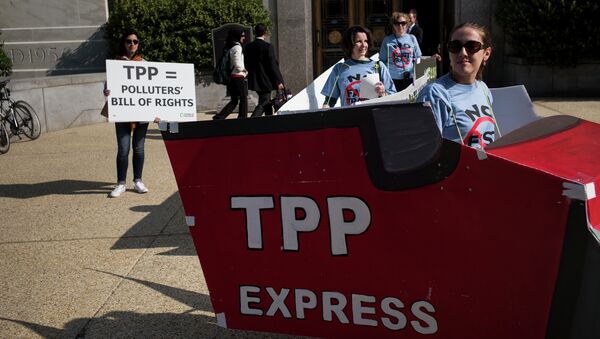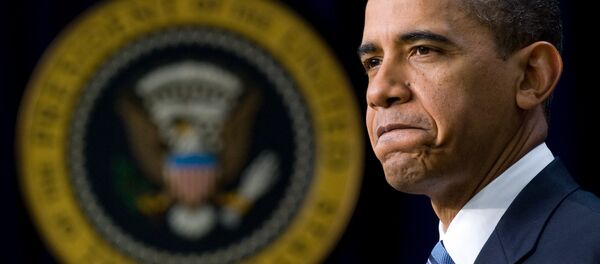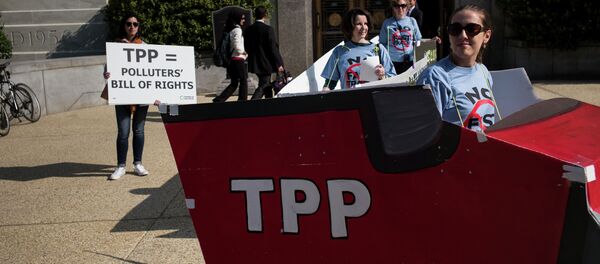US billionaire Donald Trump has already denounced the deal as a disaster for American businesses, along with some prominent lawmakers and labor union representatives. According to critics of the deal, it would hurt workers, expand corporate power and undermine regulations. The lack of transparency is only adding fuel to the fire.
"Who can read the text of the TPP? Not you, it's classified. Even members of Congress can only look at it one section at a time in the Capitol's basement, without most of their staff or the ability to keep notes," American journalist and researcher Alleen Brown emphasized.
Stand w/ @SenWarren & @SenSherrodBrown! Tell #Obama to release secret #TPP text: http://t.co/h7Fp1C6zio @CREDOMobile pic.twitter.com/31V7nODEEy
— Global Trade Watch (@PCGTW) 13 мая 2015
But there is an exception, the journalist highlighted: you can gain access to the mysterious document "if you're part of one of 28 US government-appointed trade advisory committees providing advice to the US negotiators."
Curiously enough the committees "with the most access" to the much-talked-about document are 16 "Industry Trade Advisory Committees," including America's largest enterprises, such as AT&T, General Electric, Apple, Dow Chemical, Nike, Walmart and the American Petroleum Institute, the researcher pointed out.
We must rebuild American manufacturing and rewrite our trade agreements so that our largest export is not our jobs. #TPP
— Bernie Sanders (@SenSanders) 12 мая 2015
The impact of the TPP trade agreement is expected to be sweeping, Alleen Brown underscored: the deal could limit efforts at food safety reform and allow US multinational corporations to contest domestic policies in an international court.
Furthermore, the TPP could bolster such practices as, for example, copyright term extension limiting fair use, or creating technologies and software products "riddled with restrictions" on what programmers and ordinary users can do with them. Predictably, it would play into the hands of huge corporations.
The secrecy alone makes the #TPP highly illegal.
— m. (@pencil2px) 13 мая 2015
At the same time Industry Trade Advisory Committees (ITACs) are functionally not affected by many of the transparency rules, since these rules may threaten "third party commercial and/or financial information from disclosure."
"Finally, they also escape requirements to balance their industry members with representatives from public interest groups," Alleen Brown stressed.
Indeed, in practically every committee a majority of members belongs to industries and only a few individuals come from civil society groups.
"It's hard to have influence if you have 20 people from the industry and one from civil society. There'd have to be a pretty serious effort to achieve more balance," elaborated Karen Hansen-Kuhn, director of international strategies for the Institute for Agriculture and Trade Policy, as quoted by Alleen Brown.
The best outcome would be if Congress adopted a new system, noted Karen Hansen-Kuhn, as cited by the journalist.




